
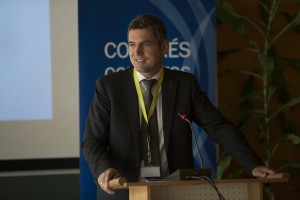
Member of the European Parliament, South Tyrol / Italy
“For sure it would be easier to have only one language – also for us in the European Parliament it would be easier to speak in one language only. But I am convinced that our mother tongue is part of our identity and if we want to be successful with this big Europe, it works only if we respect the diversity of culture, of languages, the diversity of different people living inside of Europe. I am convinced that if we are not able to solve this question Europe will never be united.”

European Commission, Directorate-General for Translation, Brussels / Belgium
“I can express myself in ten languages, but I would say I speak seven or eight quite well of them.
Languages are important: Studies of the European Commission proved that it’s easier to find and change a job and it’s easier to be promoted in your job, if you speak several languages. So at a personal level there is an added value.
In order to be successful and in order to be able to conquer new markets, companies need staff that speaks several languages, that has the knowledge of several languages.
Minorities are like bridges between cultures and between countries and in minority regions several languages are spoken. Normally the standard of living in minority regions is also higher.”
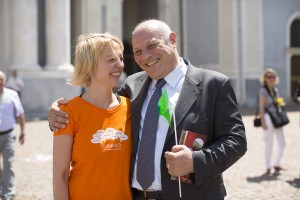
Prime Minister of South Tyrol / Italy
“Europe has brought us many economic advantages and what is more, we never lived before in such a long time of peace. But Europe has to understand, that it can only be nice and lovely and that it can only mean home to all of us, if it takes seriously all the small homes it includes: its diverse identities, its unique regions, its minorities. In Europe the strong should not put himself over the weakest, but the strong should appreciate and help the weaker. We will only find long-lasting peace in Europe, if also the languages and identities of the small groups will be taken seriously, and if the regions get their problems solved within their regions.
The small minorities and the small languages have to be preserved.”
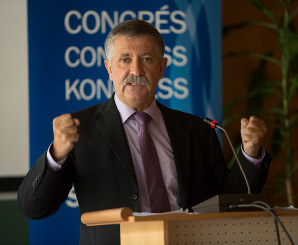
Member of the European Parliament / Chair of the Intergroup for Traditional Minorities, National Communities and Languages in the European Parliament, Hungary
“The EU consists of 28 countries, but even more peoples and folks: 40 million people – 8 % – in Europe belong to a minority group, to a minority community or are peoples without states. I think this is a big value for the whole EU.
In the EU-Parliament as the President of the Intergroup I am trying to learn “hello” in 22 languages: “servus”, “hi”, “hello”, “szia”, and so on. When there is a big event like Christmas day, I wish “Merry Christmas” in 22 different languages in the elevator. I think it is very important to make this gesture, because it shows that I am open to other people, to other cultures, to other languages. At the present stage in Europe, when we are becoming more and more egoist and more and more nationalists, it is important to learn languages, even if it only are some words, because like this we show that we are ready for being informed about European culture, traditions, identity and European languages.”
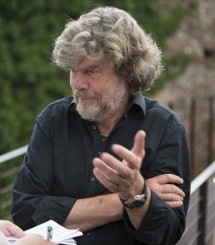
Mountaineer, adventurer and author, South Tyrol/Italy
“If you look at humanity in detail, you will find out that each of us is part of a minority and each of us has the right to be respected as a minority with the same rights as everybody else.
I personally had the opportunity in my live to see and visit many people worldwide. Especially in the mountains there are hundreds of different peoples speaking different languages, living different cultures. I am very lucky that I could learn from all of them. I feel part of them. I hope that maybe in 100 or 1000 years we will finally have peace on the earth, because all the minorities are respecting each other.”

Singer-songwriter from the canton of Grison in Switzerland, who writes songs in Romansh and English // Ursina ei ina cantautura ord il cantun Grischun en Svizra, che scriva canzuns cun texts romontschs ed engles (www.ursinamusic.com)
ROMONTSCH
„Musica ei lungatg, lungatg ei cultura, cultura ei identitad ed identitad dat forza. Pli bia lungatgs che vegnan tschintschai ell’Europa e pli multifaras e vivas ein las culturas ed brat denter quellas. Quei brat, il qual jeu pertscheivel fermamein enteifer la Giuventetgna dallas Cuminonzas Etnicas Europeicas (GCEE), ei fetg inspironts ed influenzescha mia musica.”
ENGLISH
„Music is language, language is culture, culture is identity and identity strengthens. The more languages are spoken in Europe, the more diverse and vivid are the cultures and its exchange. This exchange, which I especially experience within the Youth of European Nationalities (YEN), is incredibly inspiring and it influences my music deeply.”
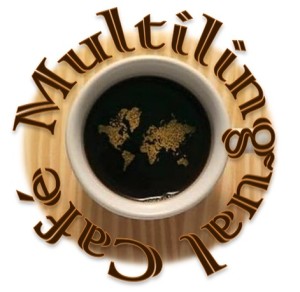
Doctor of “Arts, Culture & Communications” at Bordeaux University,
Founder of the Multilingual Cafe and Expat-Lang
ENGLISH
„Language diversity is an open door to others. A door which stays open to discover and enjoy the culture of others and who they are. Language diversity is making every single language live and be active in creating new words and concepts. Language diversity is allowing people to think, work and live in the language of their ancestors and respecting who they were.”
FRANÇAIS
„La diversité linguistique, c’est ouvrir sa porte aux autres. Cette porte se doit de rester ouverte afin de découvrir et apprécier la culture de l’autre et de comprendre qui il est. La diversité linguistique est rendre chaque langue vivante et active en lui permettant de créer de nouveaux mots et concepts La diversité linguistique, c’est permettre aux gens de penser, travailler et vivre dans la langue de leurs ancêtres et de respecter ceux qu’ils étaient.”
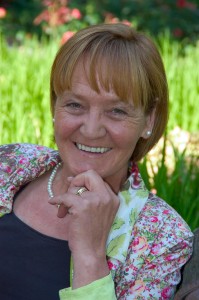
Member of the Government of the Autonomous Region Trentino-South Tyrol (Italy),
Vice President of the Federal Union of European Nationalities (FUEN)
ENGLISH
“Only few people know that only in the European Union people do not just speak 23 official languages, but also 60 regional and minority languages; often the minorities themselves are not aware about the added value and the benefits related to this diversity. We have to enhance the visibility of the benefits of regional and minority languages and use the resource of existing bilingualism and trilingualism. Only so we contribute in the best way to the preservation of linguistic diversity.”
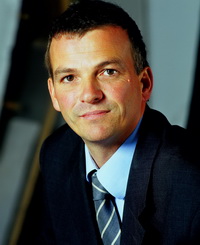
Eigentümer und Geschäftsführer // Owner & Managing Director FoxAutorent
DEUTSCH
„Mehrsprachigkeit ist eine immense kulturelle Bereicherung. Sie erweitert nicht nur Horizonte und Möglichkeiten der Kommunikation, sie ermöglicht auch völlig neue Ausdrucksformen. Als deutscher Muttersprachler in Budapest wohnend erlebe ich immer wieder die Vielfalt und Schönheit der jeweiligen Sprache.”
MAGYAR
„A többnyelvűség egy óriás kulturális gazdagsággal is jár. Nemcsak látókörünket bővíti, hanem új lehetőségeket is nyit számunkra a kommunikáció terén. Egyben új kifejezési formákat is lehetővé tesz a mindennapjainkban. Mint német anyanyelvű, aki Budapesten élek, újra és újra megtapasztalom azt a sokszínűséget és szépségét, amit a nyelvek kavalkádja okoz számomra.”